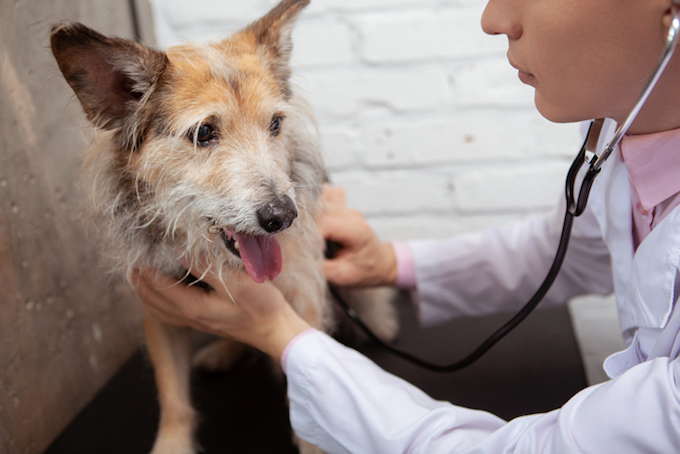Heart block (Mobitz type I) in dogs is a heart condition caused by problems with electrical impulses in the heart. The condition lowers a dog’s heart rate.
Generally, the condition affects younger dogs more than older dogs. Additionally, dogs who don’t have enough calcium in their diet can be at higher risk of it.
Thankfully, in a lot of cases, the condition clears up without treatment.
Technically, the condition is also known as second degree atrioventricular block.
If you see the signs of the condition in your dog, then get to a veterinarian for a proper diagnosis and treatment.
Here’s what you should know about the symptoms, causes, and treatments for the condition.
Symptoms of Heart Block (Mobitz Type I) in Dogs
The condition often does not produce any visible symptoms. However, in some cases the following symptoms are common:
- Loss of appetite
- Dizziness
- Vomiting
- Fainting
- Acting weaker than usual
Causes of Heart Block (Mobitz Type I) in Dogs

The cause of the condition is usually one of a small number of things. For example, some of the common causes include:
- Low calcium levels
- Cardiac neoplasia
- Taking certain medicines (including digoxin)
Additionally, in many cases healthy dogs can develop the condition.
Treatments for the Condition in Dogs
Firstly, your vet will ask about your dog’s symptoms. Secondly, your vet will ask about your dog’s full medical history.
Thirdly, a full physical examination will be carried out. Blood and urine tests will also be taken.
Generally, an electrocardiogram (EKG) is used to monitor your dog’s heart. This can confirm the condition.
Thankfully, in many cases no specific course of treatment will be required. Instead, your vet will advise you on diet tips for your dog. You can also take steps to improve your dog’s general heart health.
In other cases, the underlying cause of the condition will be treated. Your vet will talk you through this process.
Have you ever cared for a dog who suffered from this condition? How did your vet help your dog recover? Let us know in the comments section below.









